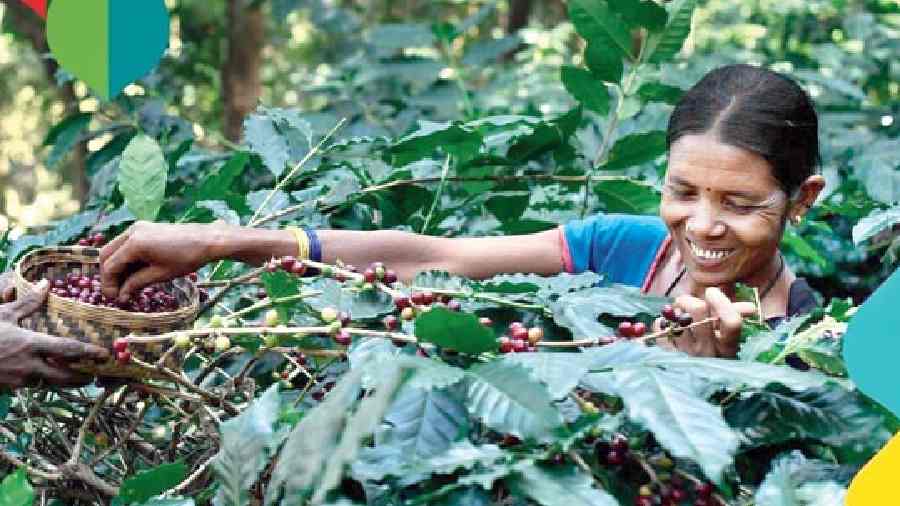Let’s confess, most of us can’t function before sipping on a steaming cup of coffee in the morning. And when the coffee is a result of labour and passion, the brew tastes even better. We are talking about the world-famous Araku Coffee that is grown in the Araku Valley in Andhra Pradesh. I had always heard about Araku Valley as a tourist destination for its scenic beauty, and little did I know that the valley is dotted with coffee plantations and Araku Coffee, a legacy project of Naandi Foundation, a non-profit organisation that first arrived in the Araku Valley in 2000 was born and since then it has been transforming the lives of several tribal farmer families by producing world-famous gourmet coffee. During our short trip to Araku earlier this year we got to know the
A-Z of the coffee brand whose first outlet in Paris has been highly acclaimed and now the brand has opened its first ever flagship store in Bangalore.
In two days we learnt and experienced how nutrient-less soil is boosted with rich organic composts that gives birth to luscious green coffee bushes with crimson-red juicy cherries that undergo several procedures before it heads to Araku Coffee cafe in Bangalore for roasting and finally we get our dose of Araku Signature, Araku Selection, Araku Micro Climate and Araku Grand Reserve coffees — India’s first terroir mapped coffee.
The Telegraph tracks the journey from the seed to the cup that involves lot of hard work, planning, transparency and eventually happy farmers and caffeine lovers.
1) The soil and Composting:
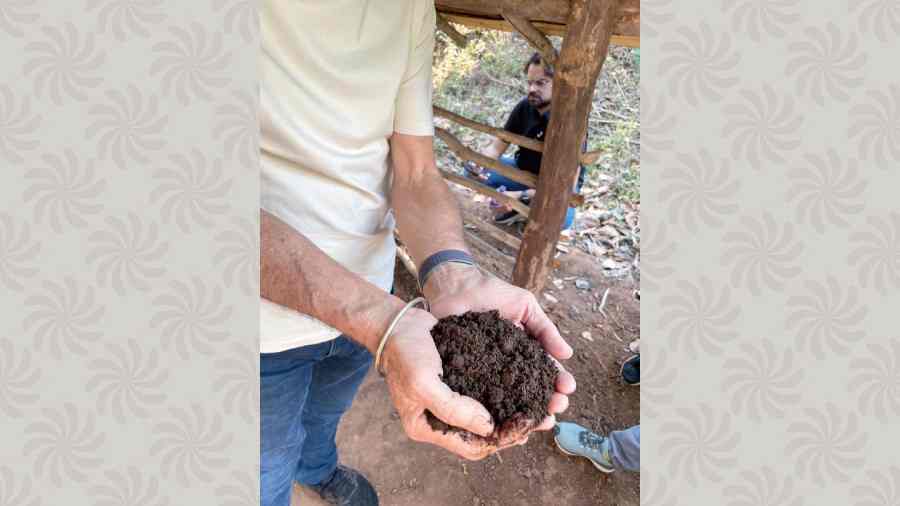
Located on the highlands of Eastern Ghats facing the Bay of Bengal is the valley of Araku in Andhra Pradesh. Just three-and-a-half hours from Visakhapatnam, Araku Valley is dotted with coffee plantations and it is certified as the largest organic and biodynamic coffee plantation in the world.
Under the leadership of David Hogg, chief agriculture advisor (Naandi Foundation), the fragile soil of the hills have been remarkably transformed with the help of organic composts, which they make using cascara, cow dung, and other homemade organic inoculants and distribute to the farmers for free. “We have around 300-400 bio centres in every village. We give the inoculants to the farmers that are necessary to trigger the decomposing of the cow dung. So we have the compost which is in modern scientific term called a prebiotic, which is the food for the microbes. While the probiotics here (in picture) are the inoculation of those prebiotics. With the help of the organic compost we make, the fertility of the soil changes like magic. As a result our cherries are rich in natural sugar, almost a sweet 22 on the BRIX meter (which measures sugar content),” explained David.
2) Cherry picking:
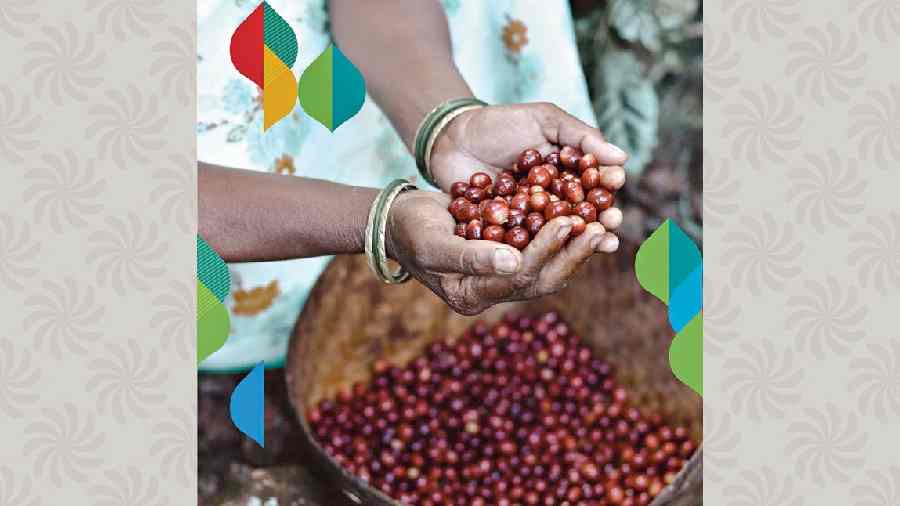
The Valley comprises over 14,000 farmers across hundreds of villages and growing 100 per cent Arabica coffee. The mindful farming and fertile composts ensure high-quality coffee cherries. During harvest season, that we were lucky to be a part of, only the reddest of cherries are picked by the farmers that have an unique floral aroma and fruitiness. Once we trekked through the lush green forest with coffee plantation, we noticed that peppercorns, lemon and custard apple plantations that maintain the diversity of the land and also provide extra income.
To ensure equality and transparancy, Naandi Foundation has put a fool-proof system in place that oversees everything from harvesting to the final product.
3) Coffee processing unit:
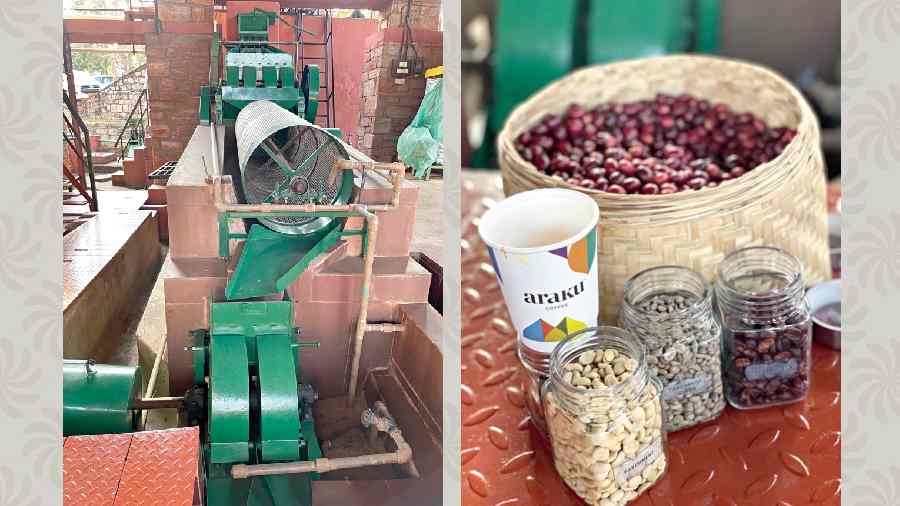
Once harvesting is done, the beans are weighed, washed and processed. The duration of processing depends on the type of the coffee beans. Coffee production is known to be one of the primary causes of water pollution and waste as regular coffee processing units are said to use a lot of water. A special coffee machine helps ARAKU coffee use only a fraction of the water than what’s used in conventional methods. Post-washing, the cherries undergo a process called destoning, then they go into the syphon tank where they are moved forward into the pulping utility via screw movement where the seed and skin are separated. This is followed by a process where the skin of the coffee goes through a separate track and falls into the trolley, which is taken to the composting area. Based on the selection of the coffee and demand of the buyers, the cherries undergo further fermentation, washing and drying.
4) Drying:
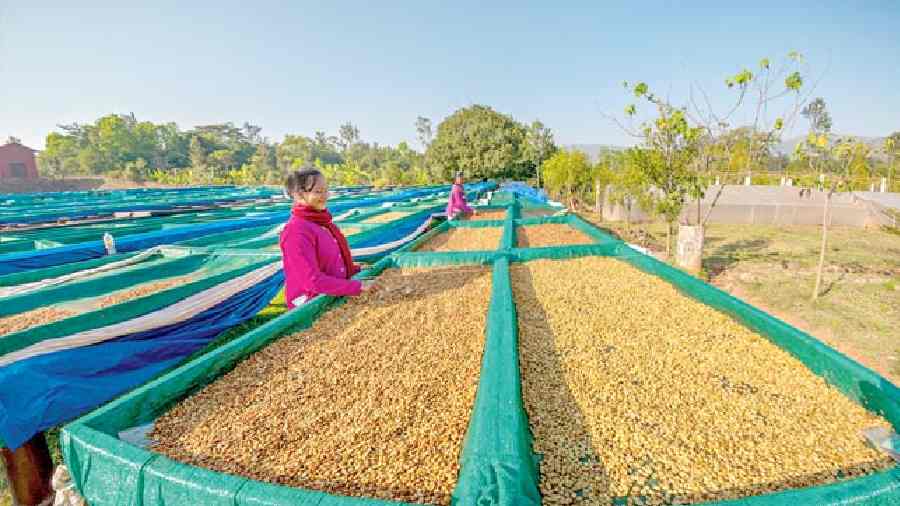
One of the most vital steps in ensuring the taste of the coffee is the way the beans are dried. Araku cherries are dried on a raised platform made of aluminium with a stainless steel bottom with a 360-degree exposure. However, there are tips and tricks of drying the beans too, which are minutely followed by Team Araku. “Racking the coffee beans continuously and evenly is very important. Coffee should not be over-dried, because if you roast the coffee you won’t get flavours. Again, if you under-dry them the shelf life will be very less,” said an official.
5) Roasting:
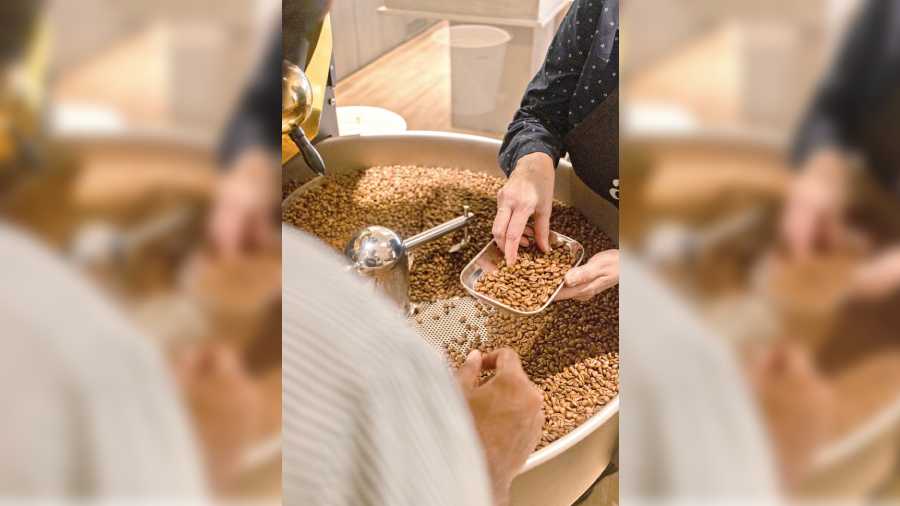
There’s nothing like freshly roasted coffee beans that are seeped deep in aroma and flavours. The coffee beans are brought to Araku Coffee cafe in Bangalore where they are roasted in-house, at the brand new roastery.
The freshly roasted coffee is used at the cafe or packed and dispatched for customers to enjoy at home. The design of the roasting section also allows guests to see the roasting process happen in front of them.
Meet the team behind the entire Araku experience
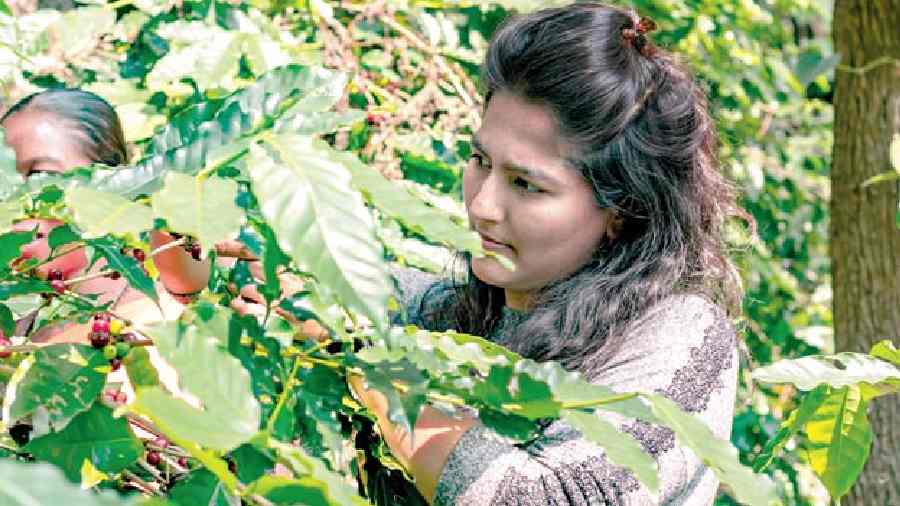
Aditi Dugar, chief brand advisor, retail and lifestyle (Araku Coffee): She is the driving force behind the cafe and helms the food and beverage programme, brand partnerships, corporate sales, e-commerce presence and shapes the brand voice on social media. Aditi is also popularly known in the F&B industry for creating bespoke experiences and her restaurant Masque made it to #Asias50Best 2021 and 2022 list.
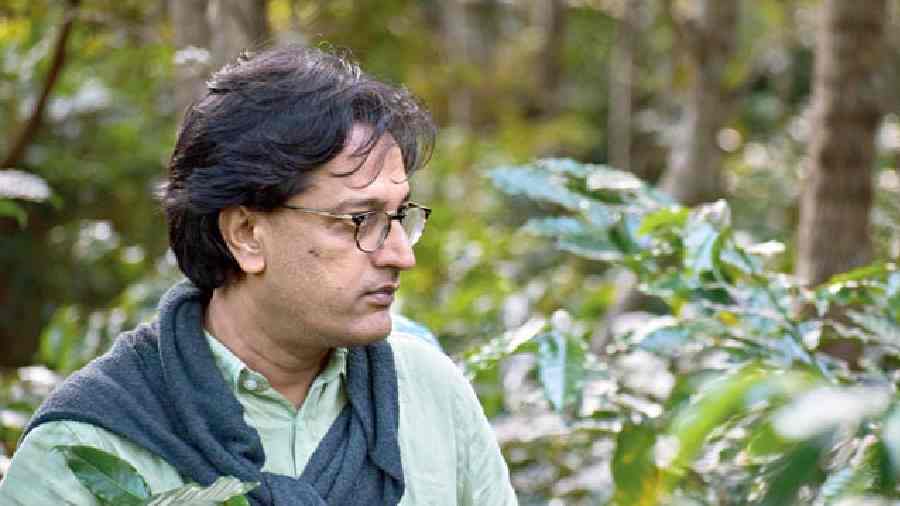
Manoj Kumar: Chief executive officer (Naandi Foundation), co-founder (ARAKU Coffee): He is the soul of Naandi Foundation. Naandi’s first decade saw Manoj design and implement innovative solutions that enhanced efficiency and quality of large-scale government services. Later he led the transformation of tribal communities of Araku Valley. Araku Coffee enabled 100,000 tribal lives to come out of poverty.
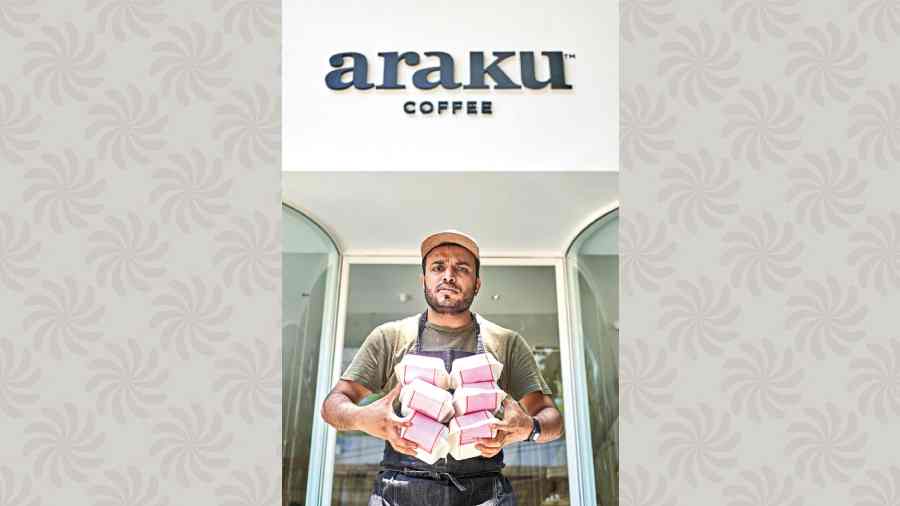
Chef Rahul Sharma, brand executive chef (Araku Coffee): Meeting chef Rahul during the trip was a revelation for a hardcore non-vegetarian person like me! Chef, who accompanied us on the tour, was responsible for blowing our minds with various plant-forward menu using locally sourced fresh ingredients, all served in an open mangrove spot or under the canopy of passionfruit creepers. Sourdough Phulkas, Yogurt, Pickled Onions, Charred Eggplant, Cherry Tomato ketchup are a few dishes I recall fondly!
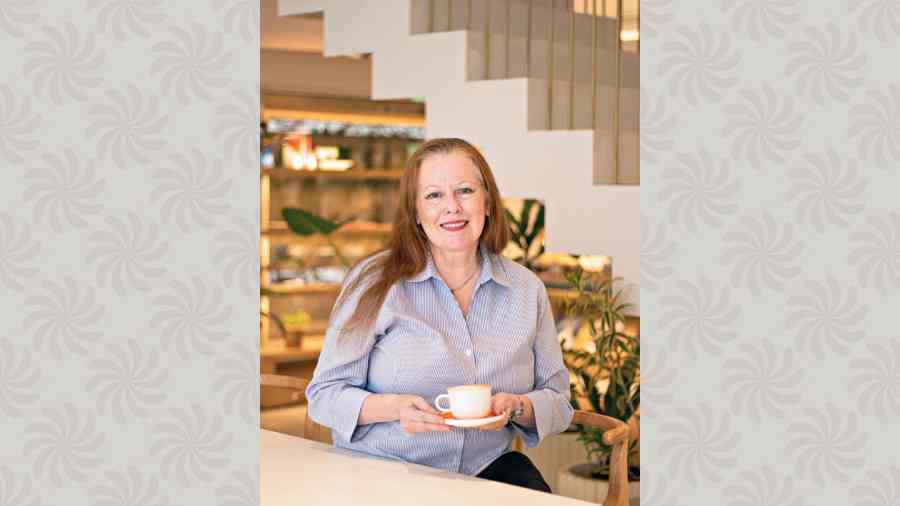
Sherri Johns, coffee mentor, head judge of gems of Araku (Araku Coffee): Soft-spoken and loveable, the Portland-based coffee specialist is coffee mentor at Araku, training baristas and guiding new releases. She is also involved in improving the livelihoods of coffee farmers in the non-traditional growing region of Araku Valley.
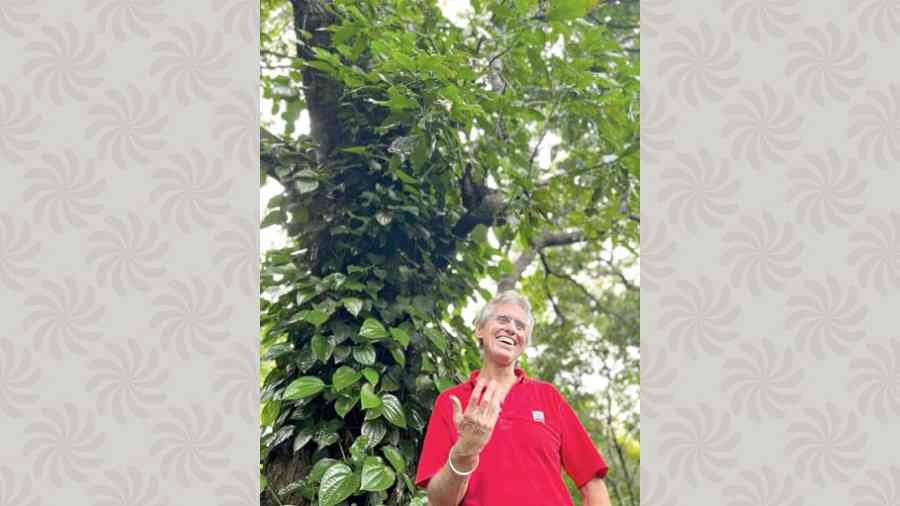
David Hogg, chief agriculture advisor (Naandi Foundation) is the man who heads the Livelihoods division of the foundation. His special interest has been to apply organic principles to the various fields of agriculture and develop organic protocols for sustainable coffee production in the Palnis to ensure product quality.

Anupama Sreeramaneni, vice president (Naandi Foundation) Araku Transformation: A core team member, she heads the production, ops, certifications and audits for Naandi’s coffee project, and was part of the core team which led ARAKU Coffee’s successful retail launch in Paris and India.
Glimpses of Araku Coffee, Bangalore
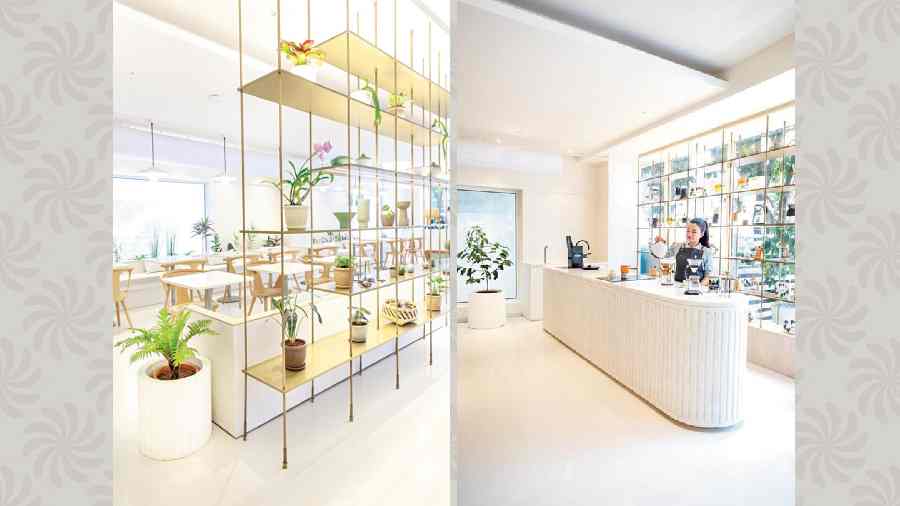
Decor: Spread across 5,000sq ft across two levels, ARAKU Coffee, has a soothing and calming effect the moment you walk in. It could be because white is the predominent shade in the interiors. Designed by Mumbai-based Shonan Purie Trehan, of Labwerk, and New York-based architect Jorge Zapata, the cafe is conceptualised as a “tranquil oasis”. There is a strong focus on sustainability right from the locally loved Sandeep Sangaru’s bamboo chandeliers, recycled metal shelves to recycled clay planters and more.
Modbar: The Araku Coffee flagship features India’s first-ever Modbar for coffee . This bridges the gap between barista and the guest, who now can see them in action unobstructed unlike other cafes where they are tucked away in a corner.
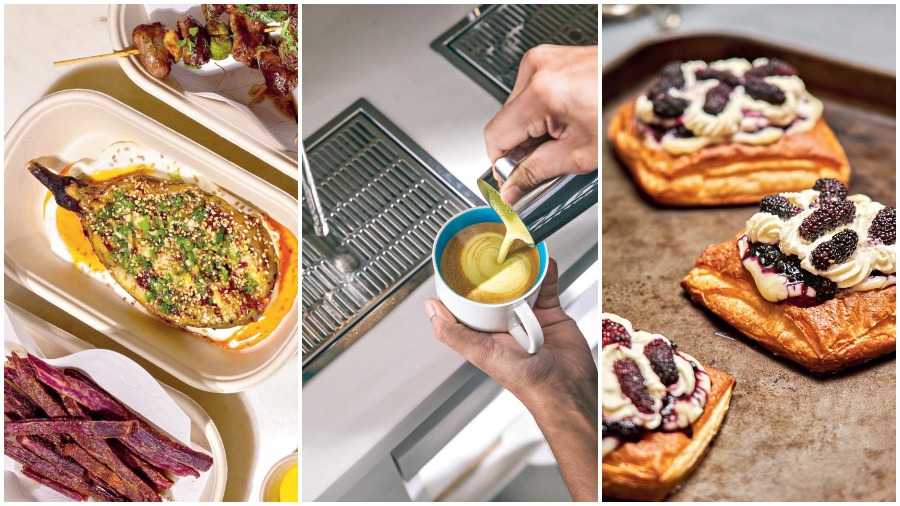
F&B: The heart and soul of a cafe lies in the food and beverage being served. The food philosophy of Araku reflects the brand’s ethos of respecting produce and the very source of it through circular food economy (reducing waste), single-ingredient focus (exploring various textures and flavour possibilities in one dish), sustainable local procurement, and traceability. Many ingredients are sourced from Araku Valley, as well as urban farms.
If you are looking for a more personalised meal experience, Araku also creates customised tasting menus for private dining, and has carved an intimate space on the second level for hosting these breakaway dinners or lunches.
Pictures: Araku Coffee
